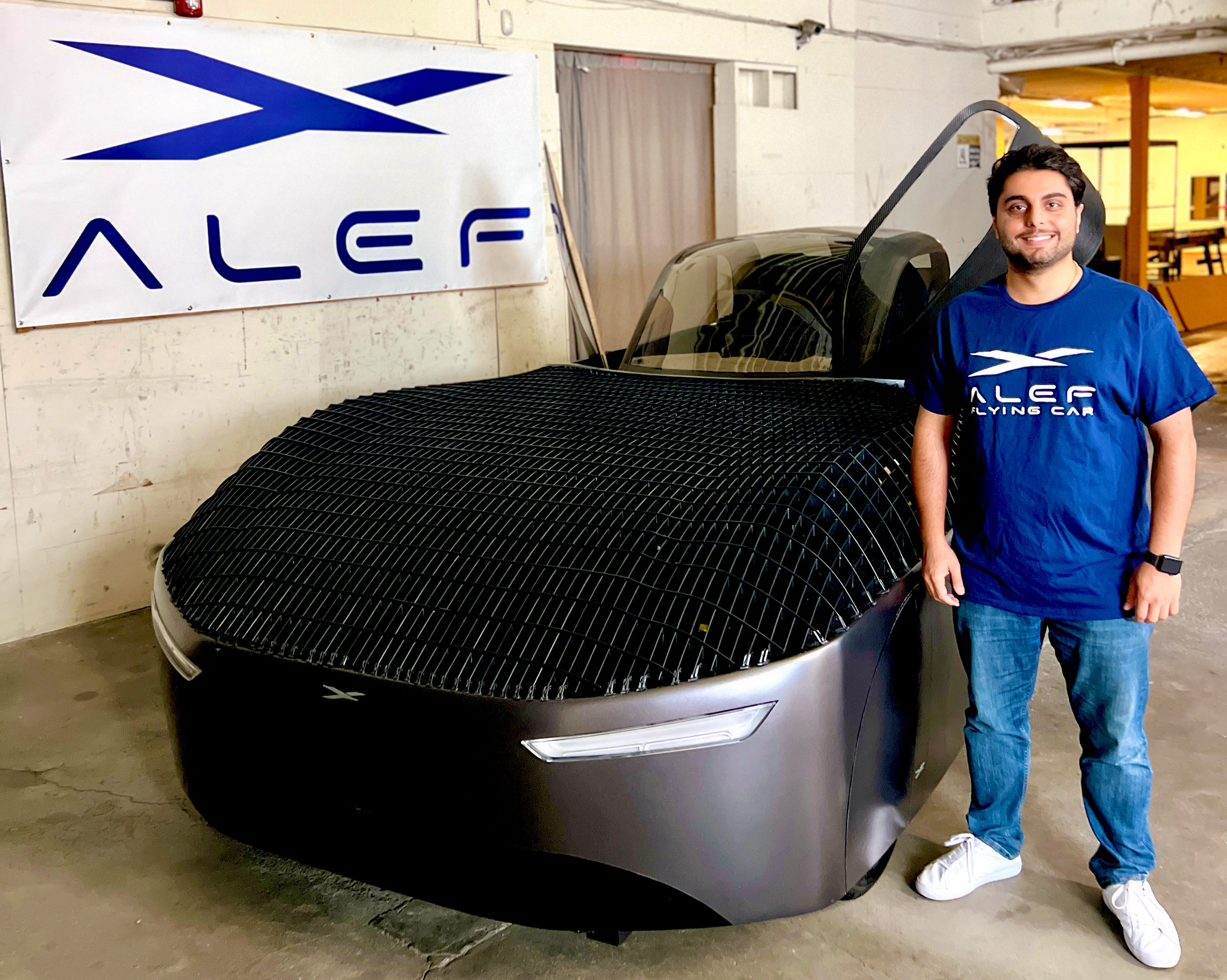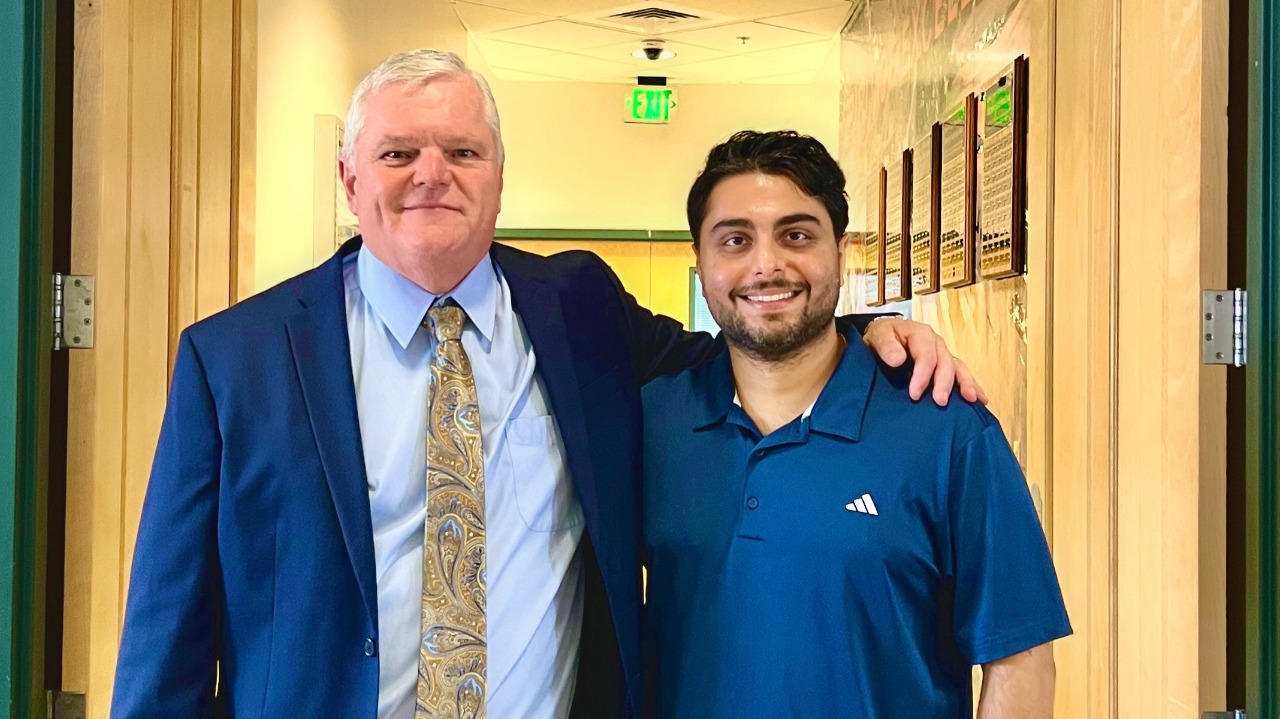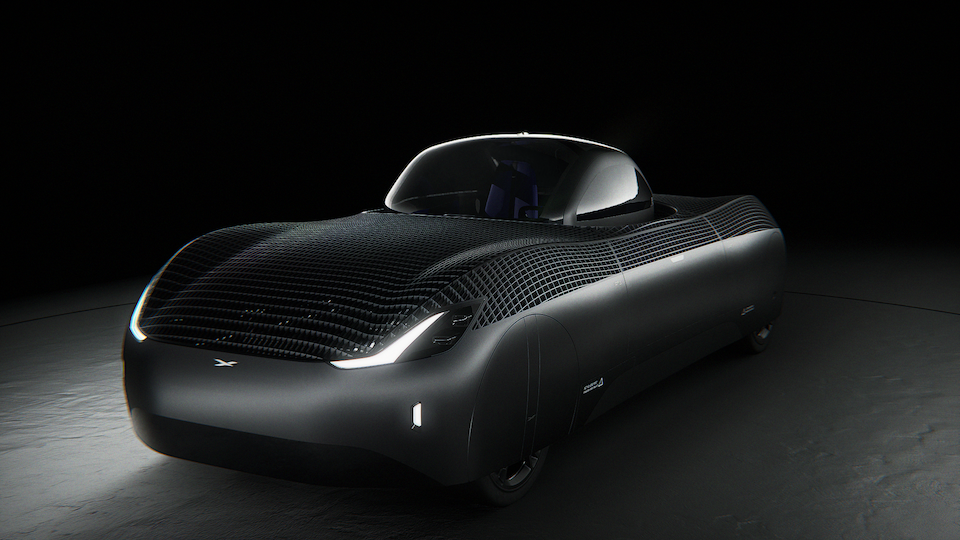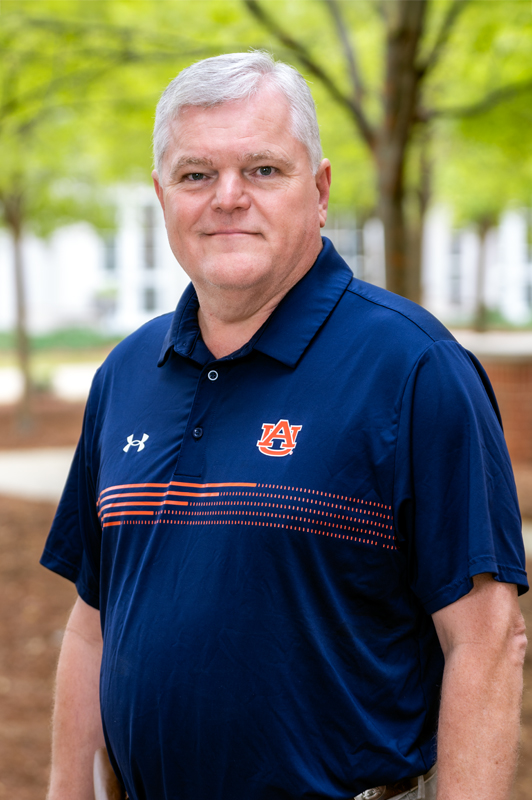Auburn mechanical engineering doctoral student spending summer developing flying cars
Published: Jul 8, 2025 2:00 PM
By Jeremy Henderson
They promised us flying cars.
Ehsan Vaghefi is trying to hold them to it.
In spring, the mechanical engineering doctoral student landed a highly-selective summer internship at Alef Aeronautics, a Silicon Valley startup that since 2015 — the same year, as their website notes, that "Back To The Future" envisioned American highways as skyways — has been designing and developing what they call "the world's first real flying car."
"I applied to several companies and had interviews with a few," Vaghefi said, "but when I received an offer from Alef Aeronautics, I was truly excited" — with good reason.
For starters, the work itself. Working in the automotive industry had been a boyhood dream. He grew up watching shows like "Top Gear," notebook in hand.
"My career path has taken me into broader areas of engineering and manufacturing, but that early passion still drives my curiosity and excitement," he said.
But there's also that sense of achievement; the Silicon Valley intern talent pool is, in a word, deep.
"There are a lot of top engineering universities represented here such as UC Berkeley, UC Irvine, Penn and the University of Colorado, among others," Vaghefi said. "Everyone is doing impressive work, and I’m proud to be among them, doing my best to meet the high expectations."
High indeed.
"Alef is combining automotive and aviation innovation," he said.
In recent years, so-called flying "cars" have essentially looked and performed like glorified airplanes. Wings. External ducted fans. Alef's vehicle is different. It moves like a car. It looks like a car. Less A-10 Warthog, more Lamborghini. More driver, less pilot.
In other words, Vaghefi says, "they really are developing a flying car."

Manufacturing contracts have been signed. Prototypes are being demonstrated for news outlets. More than 3,200 pre-orders have been received — hefty price tag notwithstanding.
Of course, at $299,999, customers obviously expect the brightest minds under the hood.
"My work includes developing composite layup techniques and mold handling, manufacturing structural components through 3D printing based on CAD design models, and most importantly, working on advanced CFD (computational fluid dynamics) simulations for spinning propellers, focusing on aerodynamic performance," Vaghefi said. "This last task has been my main area of responsibility."
It's a responsibility Bart Prorok, mechanical engineering professor and program chair for materials engineering, had no doubt his student could handle.
"Ehsan has been exceptional during his time on my research team," Prorok said, "He has a deep proficiency in simulation, modeling and machine learning, and consistently applies these tools to tackle complex research problems with both rigor and creativity."
Prorok expected Vaghefi’s intellectual curiosity, work ethic and enthusiasm for collaboration would come in handy, too.

"He's particularly adept at translating advanced computational techniques into meaningful engineering insights, making him an invaluable member of my research team," Prorok said. "That's a big reason why he likely stood out in winning such a competitive internship."
Just as big a reason in Vaghefi's mind? Prorok himself.
"Dr. Prorok has been the best advisor in my entire life," Vaghefii said. "He's not only my academic advisor but also a mentor in life. He has always been quick to provide any resources we needed for our research and constantly encouraged us to take on new and novel projects."
It doesn't get more novel than — finally — a flying car.

The flying car designed and developed by Alef Aeronautics.


